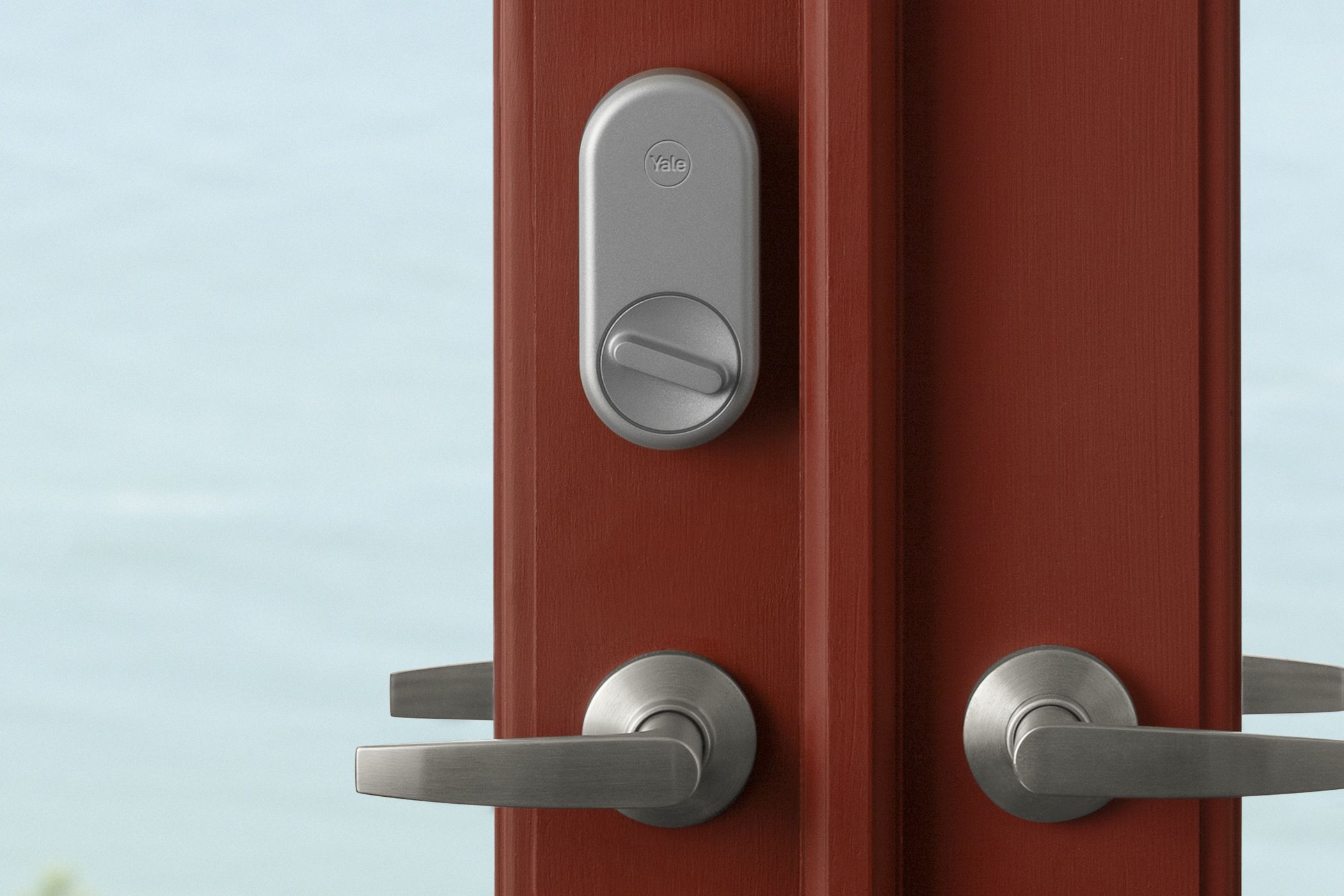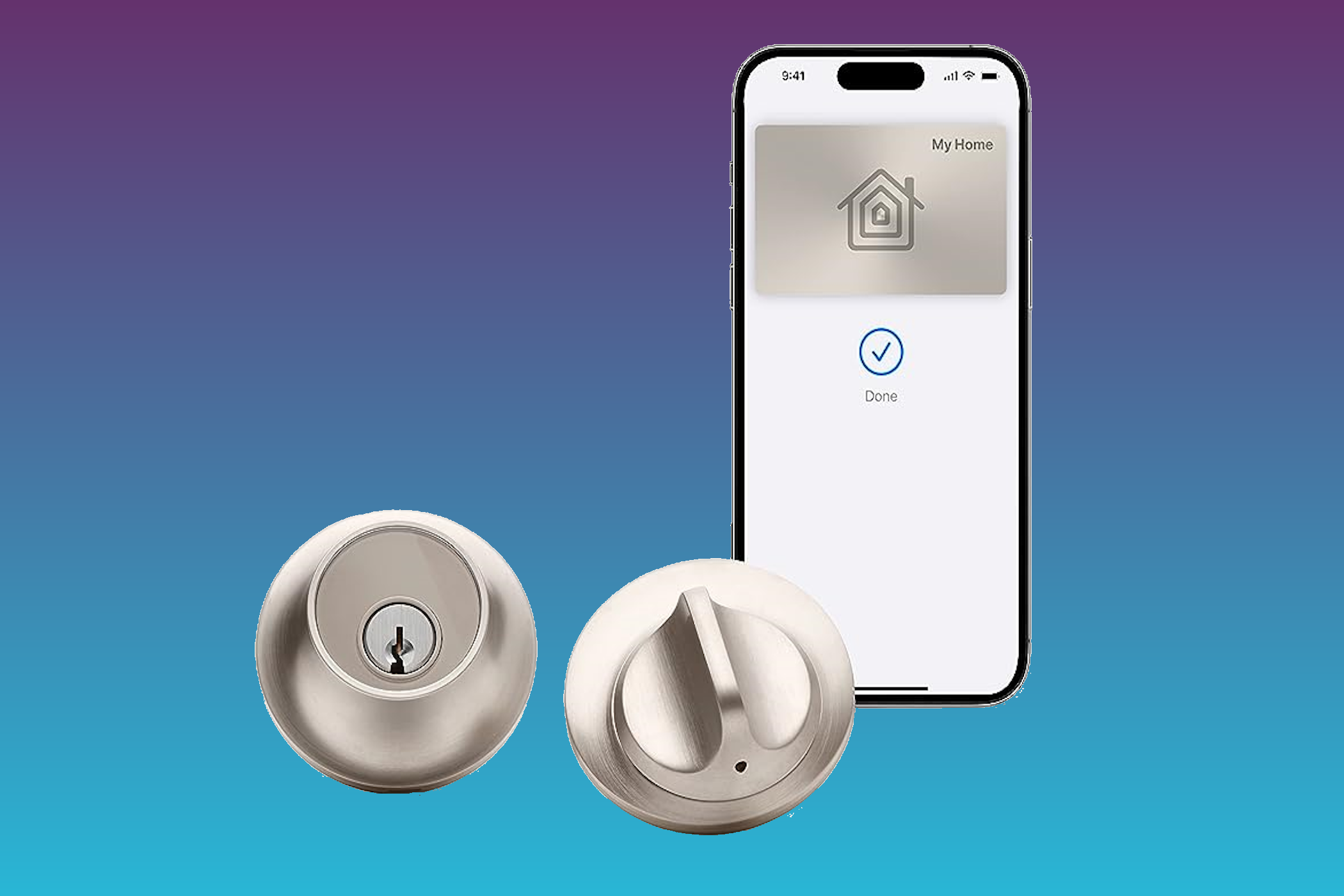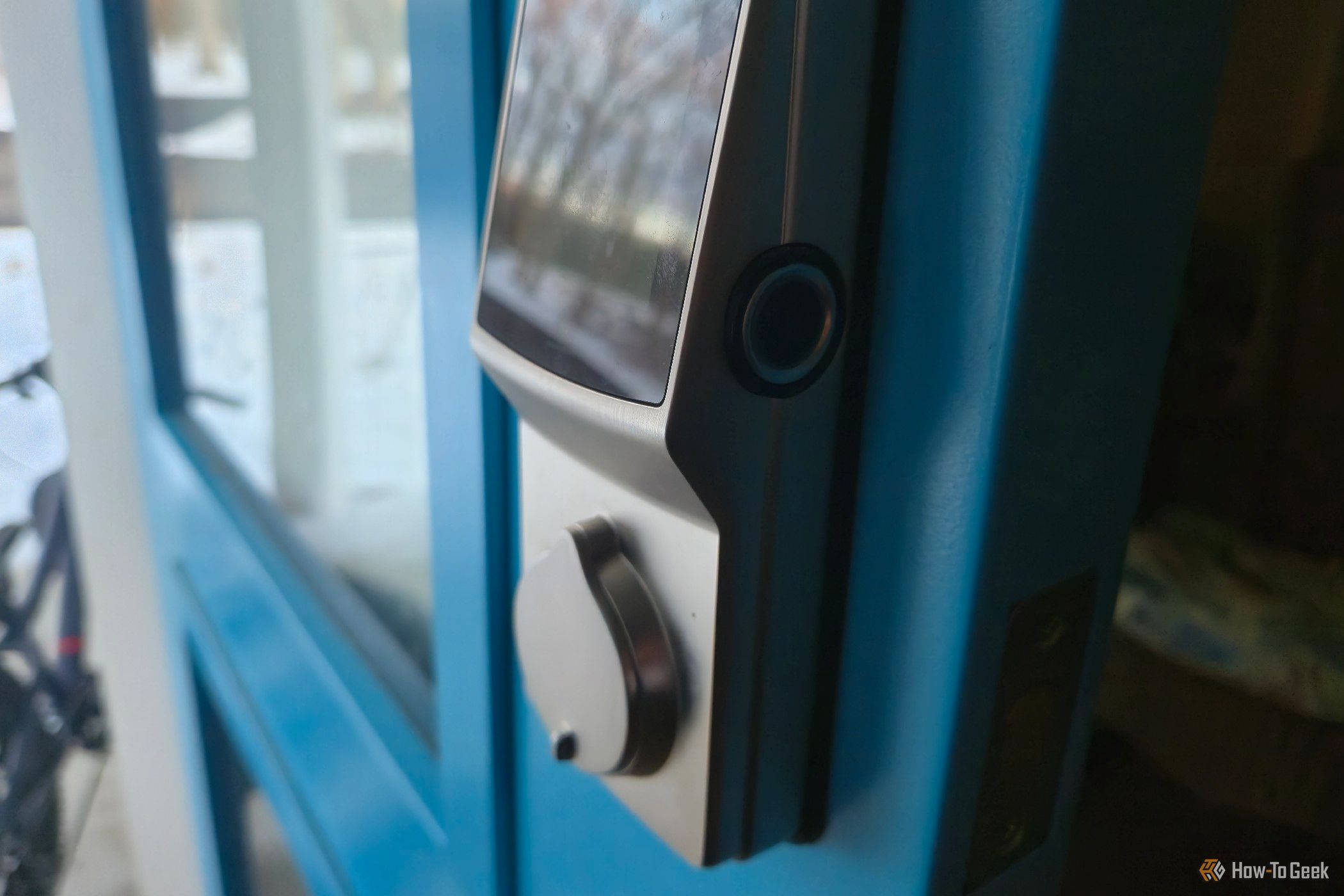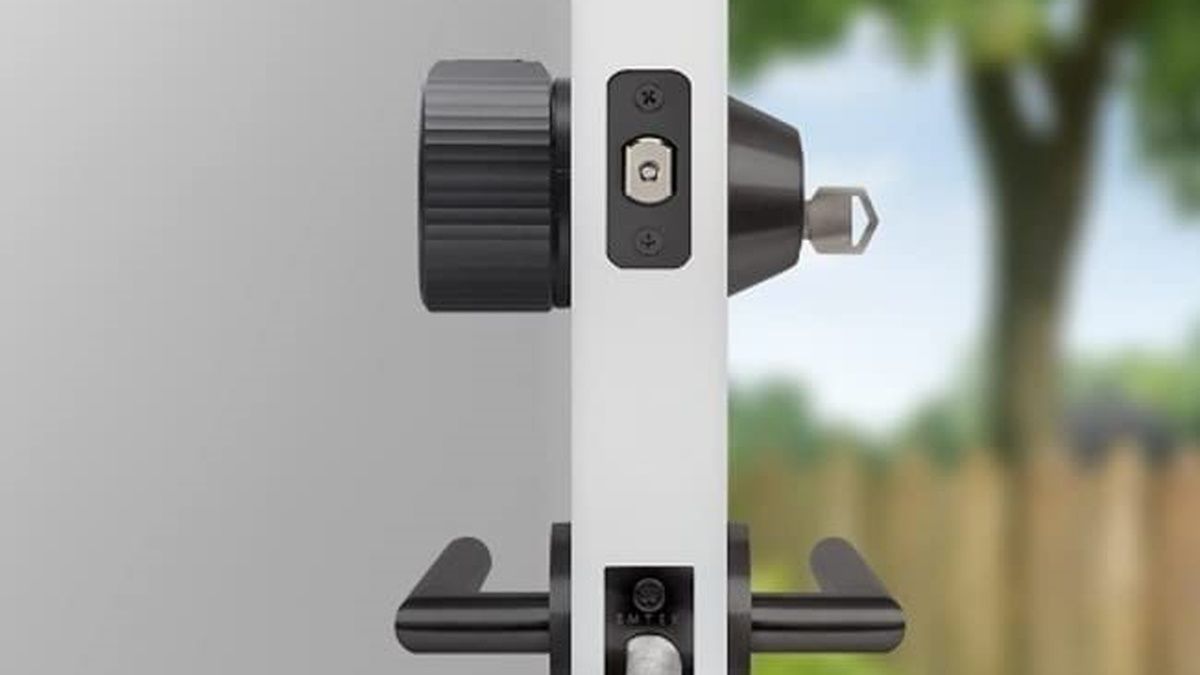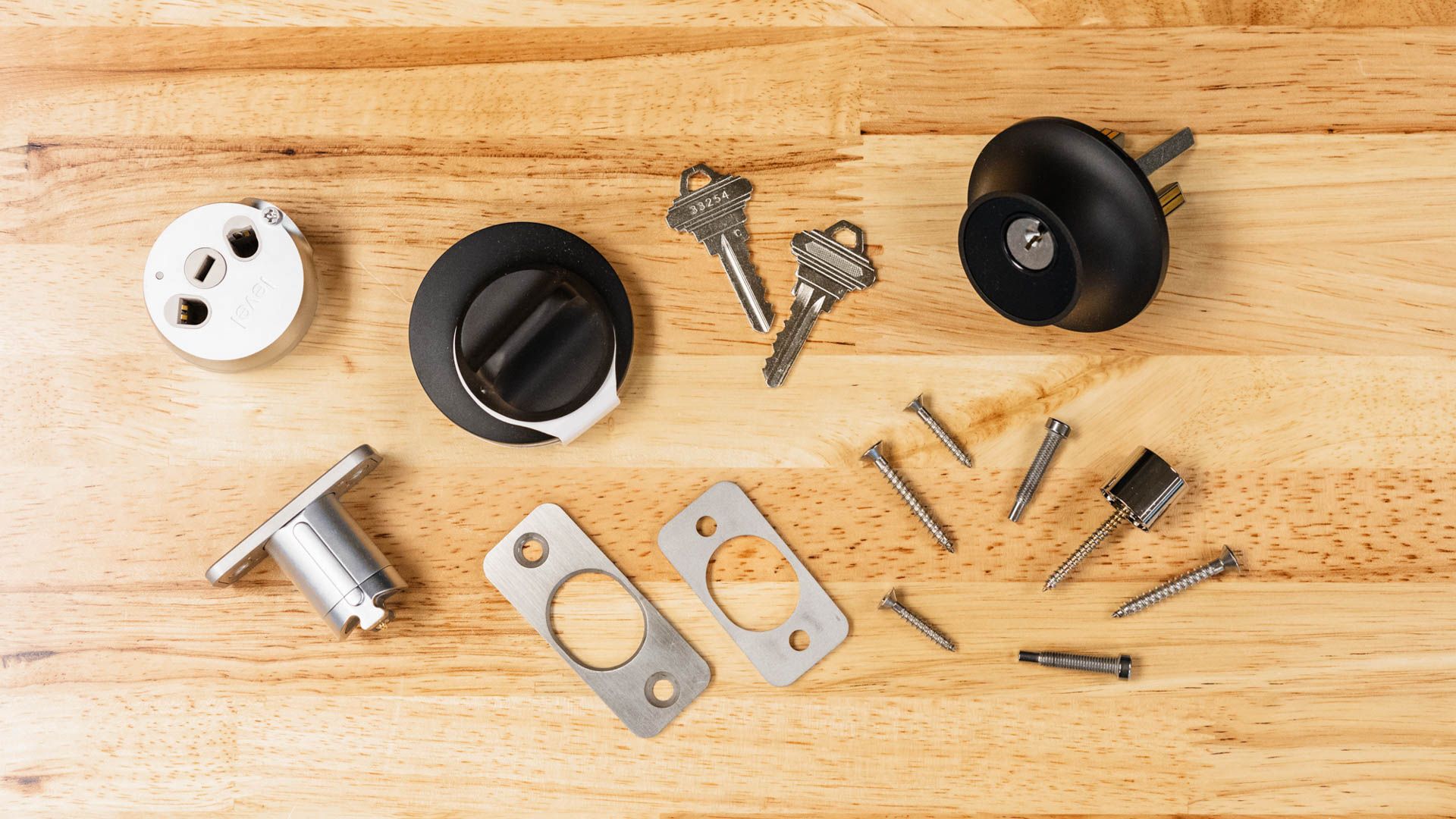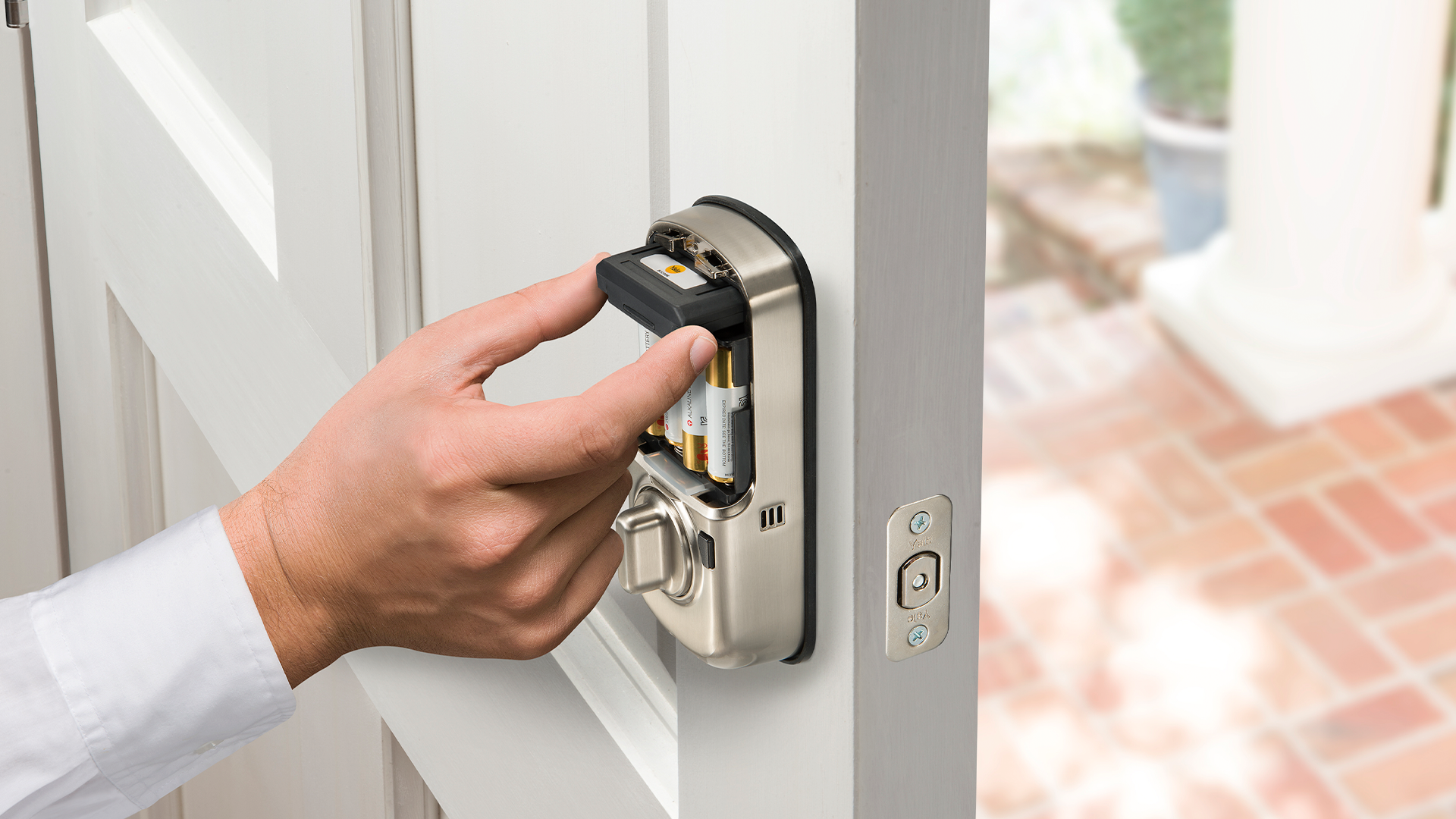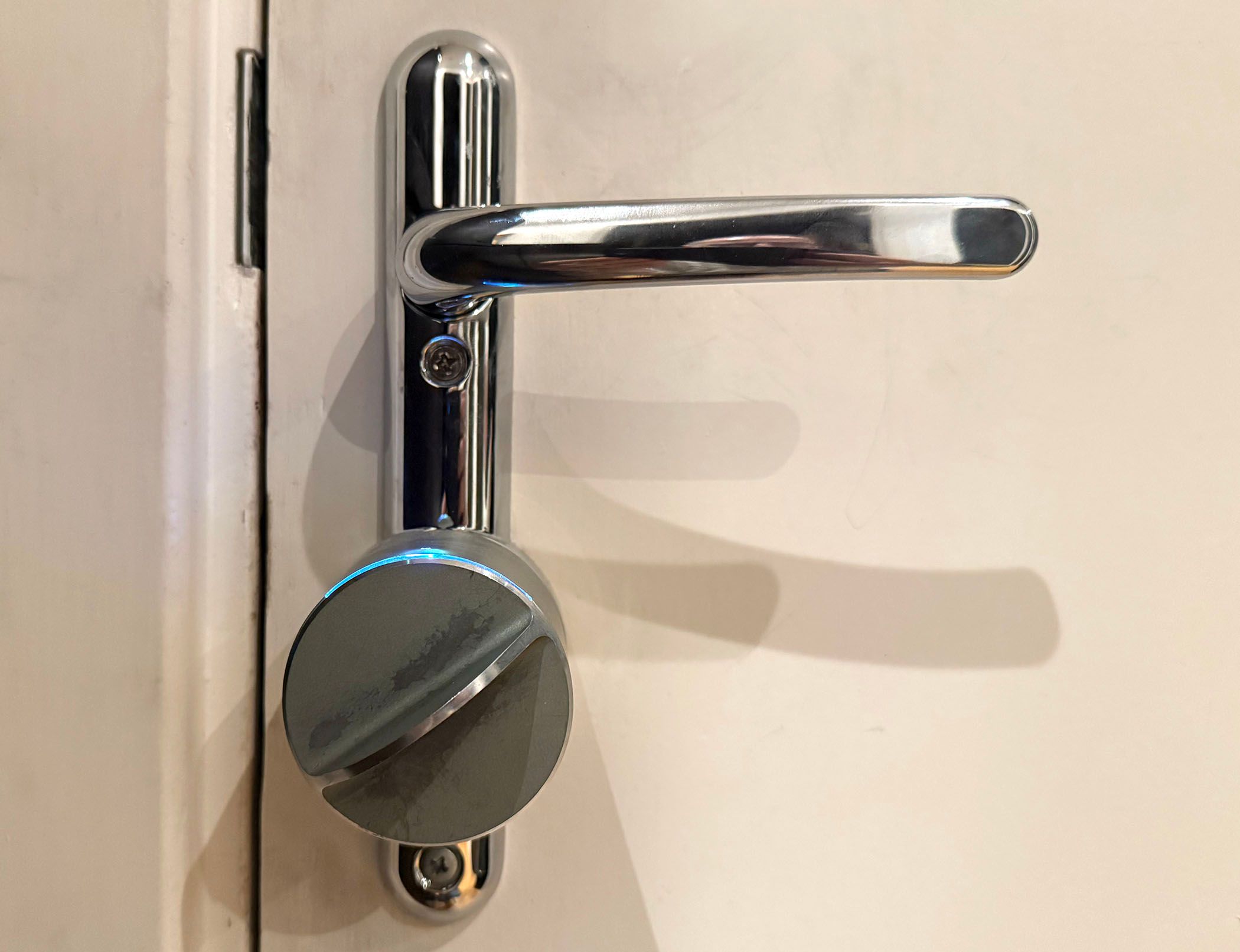Summary
- Decide how much you want to spend on a smart lock, but make sure you buy from a trusted brand with a proven record.
- Choose your preferred method of entry—whether that’s keypad, fingerprint, smartphone presence, or something else—and if you want a backup key option.
- Make sure the lock supports your smart home system and consider the installation process before purchasing.
Smart home technology has turned the humble door lock into something far more sophisticated. Here’s what you need to consider before purchasing a smart lock for your home.
Decide on a Price Range
Just like with any smart home technology, the first and most important consideration when looking for a smart lock is price. Now that the technology has matured, you can find a smart lock for anywhere from $49, but the price ranges up to $300.
The sweet spot is usually somewhere in the middle, offering a good number of features without needing to worry about the security or long-term reliability of a cheap model. Along with price range, always make sure to select a brand with a proven track record instead of a no-name selection from Amazon.
Key or No Key?
After narrowing down how much you’d like to spend, take some time to decide on how you want to use your smart lock. One of the big advantages of any smart lock is that you can finally say goodbye to the traditional lock companion—the physical key.
Instead, you can use a keypad, smartphone app, fingerprint, palm print, or something else to operate the lock. But depending on your situation, you might not feel comfortable not having a key to operate the lock. A traditional key is also a perfect backup that will always work, even if the power or internet goes out.
The good news is that there are many smart locks that also offer a key to operate the lock, so you can blend the new and age-old technology in one package. It’s the perfect backup, just in case.
For a smart lock that includes the flexibility of a key, a good overall choice is the Yale Security Assure Lock 2. Along with the key, it also sports a keypad.
How Do You Want to Trigger the Smart Lock?
Another consideration for a smart lock is deciding how you want to lock and unlock the door. Traditional locks only use a key, but there are many more options with a smart lock. One of the simplest options is a keypad where you can customize an entry code—much like a PIN at a bank.
The big advantage of that is that you can assign separate codes to family members and others, so you can keep a log of who entered your home and when. You can also create a temporary code for visitors, and then disable it when it’s no longer needed.
For even more security, there are biometric locks that can use your fingerprint for entry. There is even a lock that can scan your palm instead.
As you might have guessed, many smart locks can be used with a smartphone too. The most obvious option is through a companion app. If you’re using the lock with a smart home platform, unlocking can be as easy as a voice command. Some smart locks also use geofencing that will automatically unlock the door when you’re within a certain distance away from your home. Apple’s smart home platform has Home Key, which works using the Home app and is available on locks from brands like Lockly.
Most locks on the market offer some type of auto-lock feature that can automatically lock the door after a certain amount of time. So make sure to find a smart lock with a trigger that you’re comfortable using for the long haul.
Make Sure the Lock Supports Your Chosen Smart Home System
A big advantage of a smart lock is that you can tie it into your smart home and unlock the power of automation. That will allow you to do lots of things, with smart home products operating in unison. For example, when your smart lock unlocks, you can automatically turn on a fan or heater in your living room. It’s easy to create smart home automations that are personal to you and your family.
If you already have a smart home using one of the three most popular protocols—Apple HomeKit, Amazon Alexa, or Google Home—confirm that the lock offers compatibility with that protocol. If a smart lock is your first smart home purchase, find out some advantages and disadvantages of the three systems so you can make the best choice.
Can You Handle the Installation?
The majority of smart home devices like smart speakers and smart plugs take just a few minutes to get up and running by almost anyone. That’s not the case with a smart lock. To install the device, you will likely need at least some basic DIY knowledge. If you’re familiar with a drill, screwdriver, and other tools, you shouldn’t have a problem, especially if you have a newer home with traditional doors and locking hardware.
All smart lock manufacturers provide detailed instructions in the box and in the companion app. Many even provide videos to help you with the process. Without any roadblock, the entire process should take less than an hour.
If you don’t want to do the installation yourself, you can easily hire someone like a handyman or locksmith to take care of the work. But that will obviously add substantially more to the overall cost of adding a smart lock. For anyone living in an apartment or renting a home and can’t install a smart lock, you’re not out of luck. There are a number of great choices like the Yale Approach Lock, that still work with existing hardware.
Is Everyone in Your Home Ready to Use a Smart Lock?
Making the upgrade to a smart lock has a number of advantages. But before you make the change, you need to make sure that everyone in your home is ready to use the technology. Communication is the key to helping make sure that a smart lock, and other smart home devices, can be used by everyone at your home.
Even if someone in your home isn’t ready, you could always buy a smart lock with a traditional key, bringing together the best of both worlds.
Do You Have Strong Wi-Fi at Your Front Door?
A final determination to make while looking for a smart lock is the strength of your Wi-Fi signal at the front door, or wherever you are planning to install the smart lock. Most smart locks require a Wi-Fi signal to operate correctly, especially if you are planning to operate the lock when you are away from home. If you don’t have a consistently strong signal, you might run into trouble operating the lock from a smartphone app, smart speaker, or elsewhere.
There are a few models that just use Bluetooth, but those usually don’t provide away-from-home access.
Now that you have a better idea of what to look for when shopping, take a look at some of the best smart locks available. And if you’re looking to add another layer of security to your front door, make sure to find out how to select the best smart video doorbell for your home too.


